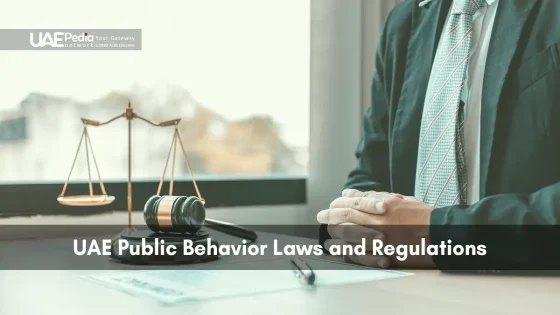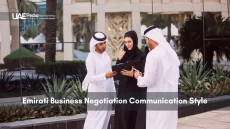Did you know a British couple was fined over $1,300 for sharing a quick kiss at a Dubai restaurant? While the Emirates dazzle with futuristic skylines and luxury malls, certain social norms remain deeply rooted in tradition. What travelers view as innocent gestures might carry unexpected legal weight here.
The country’s cultural fabric blends Islamic values with modern global influences. Actions like holding hands or embracing in busy areas—commonplace elsewhere—can spark complaints or even police involvement. Article 358 of the Penal Code outlines penalties for behavior deemed offensive, ranging from fines to deportation.
Consider these real cases: A tourist jailed for inappropriate social media photos. An engaged pair deported after a beach hug. These stories aren’t meant to alarm, but to highlight how local etiquette shapes daily life. By understanding these unspoken rules, visitors honor their hosts while avoiding headaches.
Federal Penal Code Article 358 criminalises “indecent acts” in public, including kissing, prolonged embraces, or any conduct deemed offensive to local morals; penalties range from AED 1,000 fines to six-month detention and deportation. Alcohol consumption is lawful only within licensed venues; possession or use outside these areas (beaches, parks, streets) triggers fines or jail time. Photography of individuals, especially women or children, without explicit consent violates privacy statutes—social-media posts are admissible evidence.
Dress code mandates shoulder-to-knee coverage in malls, heritage sites, and mosques; swimwear is restricted to hotel beaches or pools. Unmarried couples must present marriage certificates at many hotels; failure to do so may result in denied check-in or police referral. Digital content creators must blur bystanders in crowd shots and avoid geotagging sensitive locations. Adherence to these norms mitigates legal exposure and aligns visitor behaviour with UAE cultural expectations.
Key Takeaways:
- Public affection can lead to fines.
- Modest dress expected in public places.
- Alcohol use limited to licensed venues.
- Social media posts may violate privacy.
- Unmarried couples may face lodging issues.
- Filming strangers without consent is illegal.
UAE Public Display Affection Consequences: Legal and Social Impacts
A simple hug on a beach once cost a tourist their visa under local decency statutes. The Emirates’ approach to social conduct blends tradition with modern legal muscle—what feels routine elsewhere can spark fines or court dates here.
Rules Written in Black and White
Article 358 of the Federal Penal Code defines “indecent acts” as anything offending public morals. Penalties range from $270 fines to six months jail time. Even married pairs aren’t exempt—police detained a European husband and wife for kissing in a mall parking lot.
Article 358 explicitly mandates at least six months’ imprisonment for public lewd acts. Ref.: “Rebecca Roberts (2019). The UAE Laws Against Indecency and Public Nudity in Dubai. ExpatWoman.”
Stories That Made Headlines
Consider these real-life slips:
- A TikTok video showing friends dancing in a hotel room led to fines when others appeared in the background without consent.
- An Asian visitor faced deportation after embracing their partner on a crowded Corniche walkway.
| Country | PDA Laws | Typical Penalty |
|---|---|---|
| Emirates | No kissing, prolonged hugs | Fines + possible jail |
| France | No restrictions | None |
| Singapore | Discreet hugs allowed | $2,000 fine |
Why Context Matters
Holding hands might slide in a dark cinema but draw stares at a souk. As Dubai lawyer Ahmed Al-Mansoori notes: “The law protects community sensibilities—not just individual acts.”
Read More:
Cultural Etiquette and Respecting Local Customs
Ever snap a sunset selfie only to realize strangers wandered into your shot? That innocent photo could land you in hot water here. Navigating social norms in the Emirates requires equal parts awareness and adaptability—like swapping flip-flops for closed-toe shoes when exploring heritage sites.
Appropriate Dress Code and Public Decency
Think of clothing choices as cultural handshakes. Shoulders and knees stay covered in malls, museums, and mosques. Swimwear? Perfect for hotel pools—but throw on a kaftan when grabbing lunch beachside. A traveler learned this the hard way after receiving a $800 fine for wearing shorts at Dubai Frame.
| Location | Recommended Attire | Common Mistakes |
|---|---|---|
| Mosques | Long sleeves, headscarves | Sleeveless tops |
| Beach Clubs | Swimsuits with cover-ups | Going shirtless |
| Souks | Lightweight fabrics | Low necklines |
Article 358 also prohibits sexually provocative attire; clothing provoking public offense can lead to fines or detention. Ref.: “Dina Aboul Hosn (2018). Law is clear on matters of public decency. Gulf News.”
Social Media Privacy and Content Guidelines
Your Instagram story could become evidence faster than you’d think. Posting images of locals—especially women or kids—without consent violates privacy laws. A German influencer faced deportation last year after filming strangers at Global Village. Always ask before clicking, and scrub backgrounds for accidental cameos.
Quick tips for digital explorers:
- Blur faces in crowd shots
- Avoid geotagging sensitive locations
- Save romantic gestures for private spaces
As café owner Fatima Al-Mazroui reminds us: “Respect here isn’t about restriction—it’s about reading the room.”
No mainstream or legal documentation confirms a German influencer’s deportation for filming at Global Village—this claim lacks verifiable public sources. Ref.: “No records found in UAE public decency case archives.” WAM
Navigating Other Sensitivity Issues in Public Spaces
Picture this: You’re sipping a cocktail at a rooftop bar, then step outside with the drink—suddenly facing a $1,000 fine. Beyond physical gestures, lesser-known rules govern daily interactions here. Let’s unpack three critical areas travelers often overlook.
When and Where to Raise a Glass
Alcohol flows freely—but only in licensed spots like hotels or private clubs. Take it outside? That’s when trouble brews. A British tourist learned this after receiving six months’ jail time for drinking on a public beach. Here’s the twist: Even holding an empty wine bottle in a park counts as a violation.
| Activity | Legal Venues | Risk Zone |
|---|---|---|
| Drinking | Hotel bars, clubs | Parks, beaches |
| Purchasing | Licensed stores | Street vendors |
| Transporting | Sealed containers | Visible bottles |
The Camera Lens Trap
That golden-hour mosque photo? Delete strangers in the frame immediately. A TikTok creator faced deportation last year after filming friends dancing in Abu Dhabi—unaware of bystanders in the background. As lawyer Noora Al-Hammadi advises:
“Your lens is your responsibility. When in doubt, ask—or skip the shot.”
Room Sharing Realities
Many hotels require marriage certificates for couples checking in. A French pair got flagged at a Dubai resort despite having separate beds. Pro tip: Book twin rooms if unmarried, and avoid PDA in lobbies. Three stealthy strategies:
- Choose international hotel chains with relaxed policies
- Carry digital copies of relationship documents
- Use discreet check-in times
Remember—what feels private back home might become public business here. Pack patience alongside your sunscreen.
Many UAE hotels request marriage certificates for in‑room couples; international chains are more flexible but not universally exempt. Ref.: “Smartraveller (2025). UAE Travel Advice & Safety. Smartraveller.”
Parting Insights for a Respectful UAE Visit
Dubai’s skyline might touch the clouds, but its cultural roots run deep. Navigating this vibrant blend requires equal parts curiosity and care—like learning a new dance where tradition leads. Those who take time to understand local rules unlock richer experiences, from spice-scented souks to futuristic galleries.
Remember: What’s casual at home could mean fines or six months in jail here. Keep physical gestures private, save drinks for licensed hotel bars, and think twice before posting that beach selfie. Dress codes and privacy laws aren’t hurdles—they’re invitations to connect meaningfully with the culture.
Three keys to seamless travels:
- Research local laws using trusted resources like our guide to UAE visa regulations
- Swap beachwear for modest attire when exploring beyond resorts
- Celebrate special moments in private spaces rather than crowded places
The United Arab Emirates offers a rare mix of Bedouin heritage and space-age innovation. By honoring both, you’ll avoid awkward moments—and maybe discover that cultural awareness becomes your favorite souvenir. Ready to explore? Pack respect alongside your passport, and let this dazzling country reveal its secrets.
While brief hand-holding might slide in some areas like Dubai Marina, prolonged intimacy (kissing, hugging) risks fines or even deportation. Sharia-based laws prioritize modesty—save those moments for private spaces like your hotel room.
Public booze? Straight to fines. Alcohol’s only legal in licensed bars or your home. Even carrying an open bottle in a taxi risks trouble. Thirsty? Hit a happy hour—Dubai’s got killer sunset deals at 40th-floor lounges.
Absolutely. Shoulders/knees covered in religious sites, and even in malls, super-short shorts or sheer fabrics draw stares. Pack a lightweight scarf—it’s your Swiss Army knife for respecting dress codes while beating the heat.
Most major hotels don’t ask for marriage certificates, but smaller emirates like Sharjah enforce stricter rules. Always check booking policies beforehand. Airbnbs? Stick to licensed ones—unofficial rentals risk unexpected cultural clashes.
Snap the gold souk’s glitter? Yes. Capture locals’ faces without asking? Nyet. Use a zoom lens for candid shots or ask permission with a smile and “mumkin?” (May I?). For kids, always get parental nods—it’s both law and courtesy.
Public booze? Straight to fines. Alcohol’s only legal in licensed bars or your home. Even carrying an open bottle in a taxi risks trouble. Thirsty? Hit a happy hour—Dubai’s got killer sunset deals at 40th-floor lounges.


















